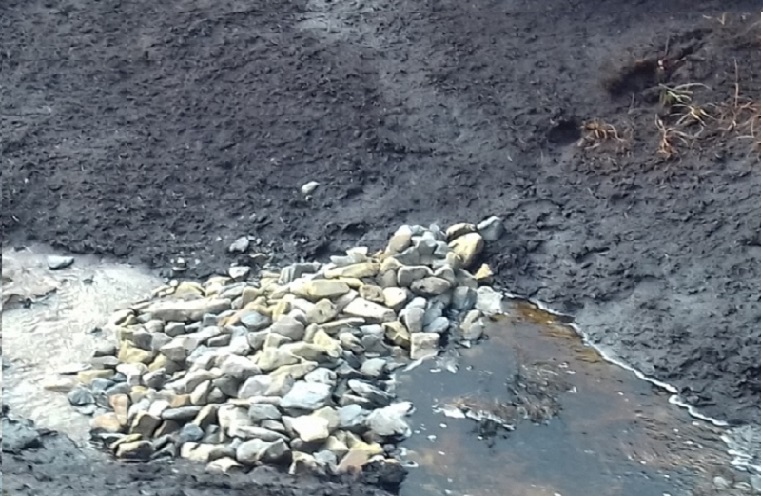Survey images - not for general view
The images below support our Wildfire Perceptions and Incidents survey at https://forms.office.com/r/ZvCuwQxFdi
Please use the navigation menus to explore the rest of our website if you aren't completing the survey.
Purple Moor Grass | Heather | Cotton Grass | Bilberry | Bare Peat
Purple Moor Grass (Molinia caerulea)
Reference photos and explanation of technique below.
Cutting
Purple moor grass is cut to reduce biomass and dominance of the species.
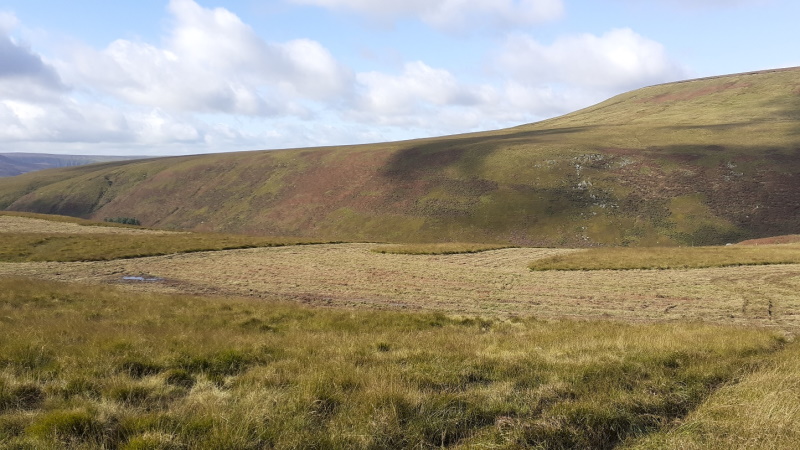
Diversification
Sphagnum Moss is then planted into the cut areas to create a more diverse community.
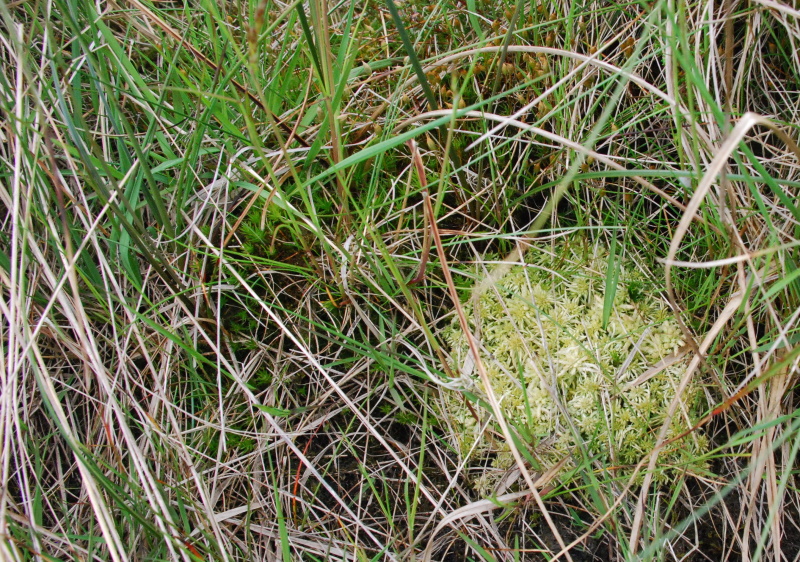
Bunds
Semi-circular raised mounds are created out of peat, in order to trap water and raise the water table.

Heather (Calluna vulgaris)
Heather Cutting
Heather is cut and the cuttings removed to be used as heather brash. Sphagnum Moss can also be planted in the cuts to aid diversification.
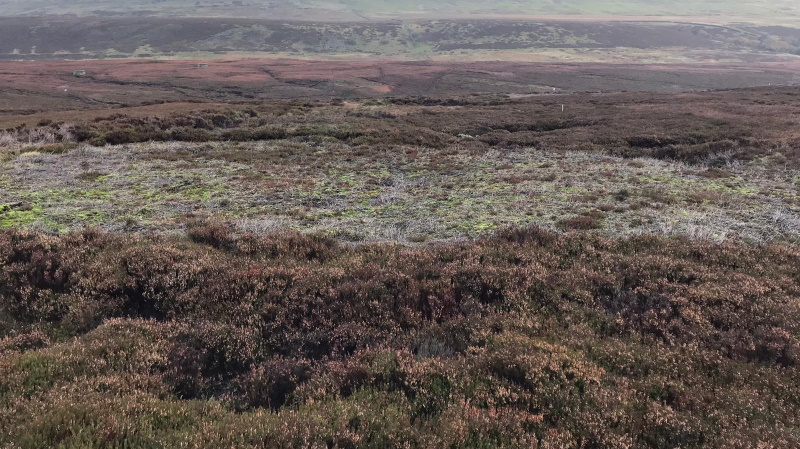
Gully Blocking
Channels are blocked to retain water in the habitat and help restore the sites hydrology.
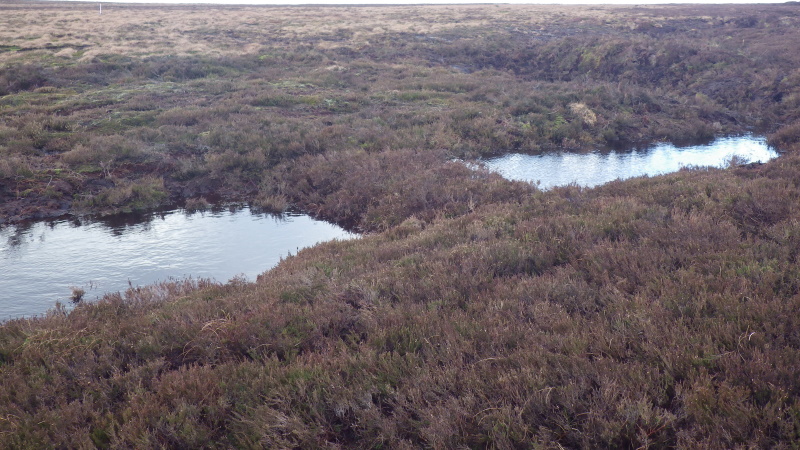
Common cotton grass (Eriophorum angustifolium)
Gully blocks
Channels are blocked to retain water in the habitat and help restore the sites hydrology.
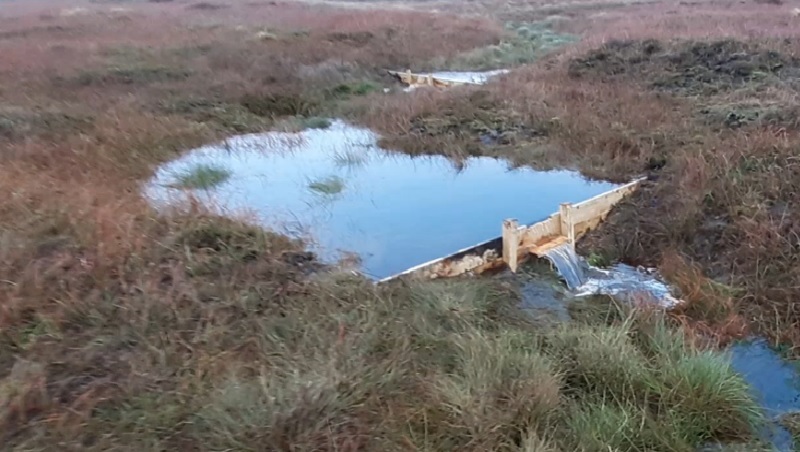
Diversification
Sphagnum Moss is planted to help diversify the habitat and help retain water.
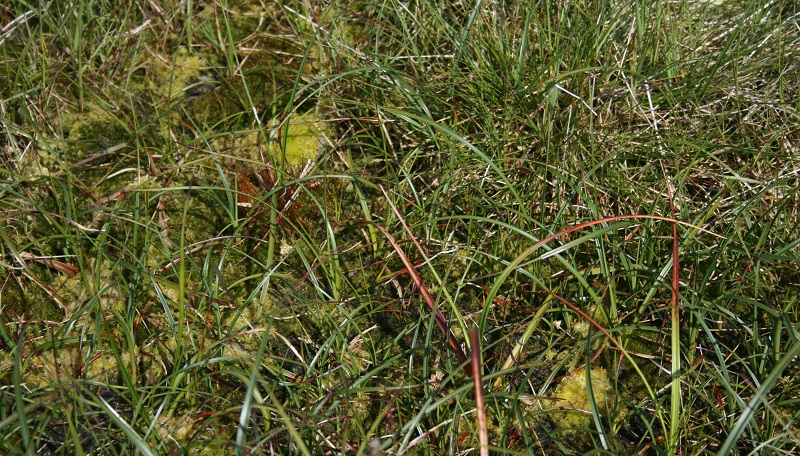
Bilberry (Vaccinium Myrtillus)
Diversification
Other plants are planted into Bilberry dominated habitats to help diversify the sward.
Cloudberry planted into Bilberry
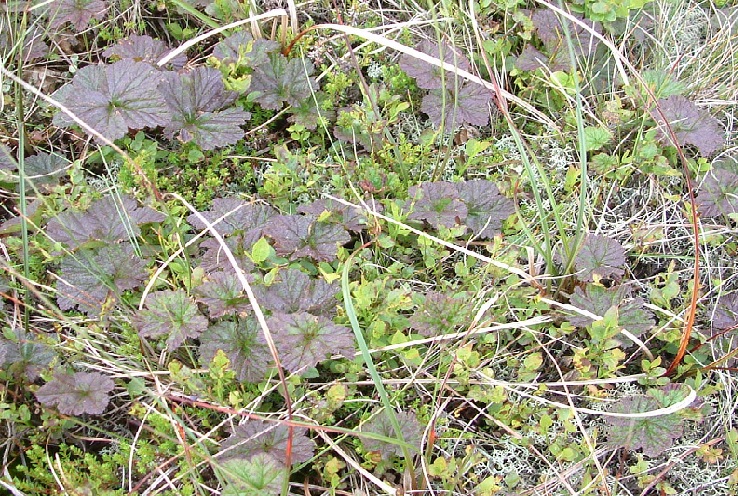
Heather planted into Bilberry
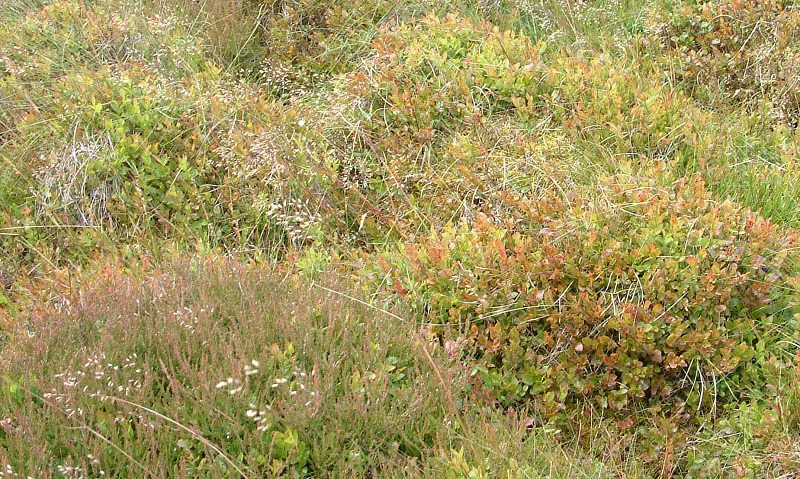
Bare Peat
Heather Brash
Heather Brash (dead chopped heather stalks) is applied to bare peat in order to stabilise the peat
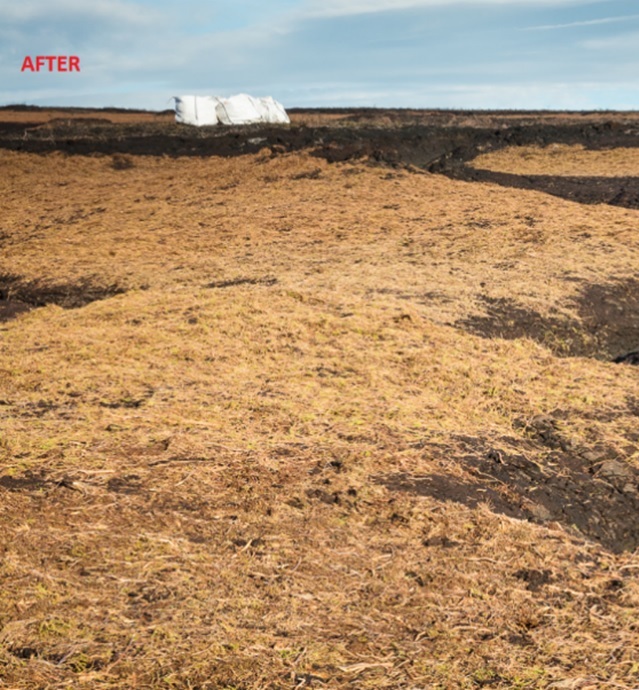
Lime, Seed and Fertiliser
Lime, Seed and Fertiliser is applied to stimulate growth of hardy grasses to begin revegetation back to an active blanket bog.
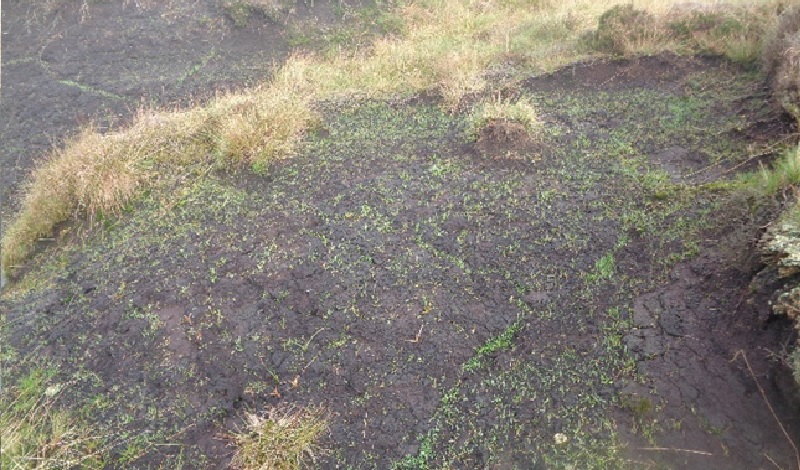
Gully blocks
Channels are blocked to retain water in the habitat and help restoure the sites' hydrology
